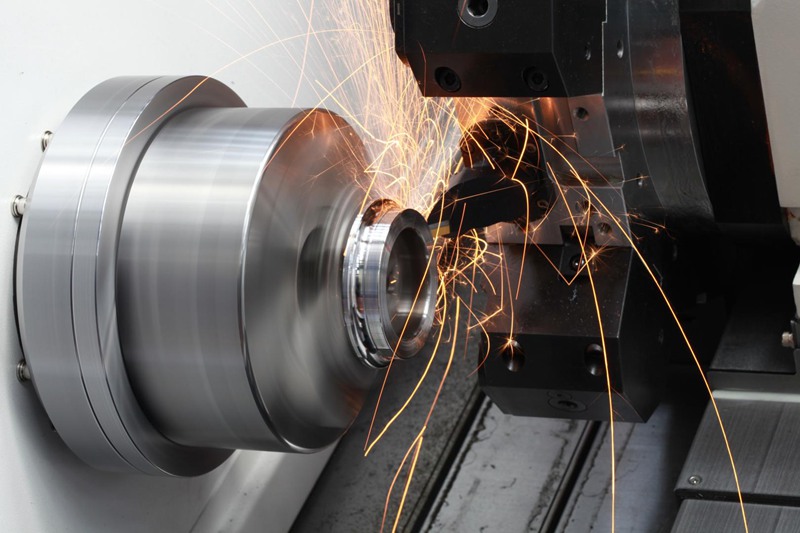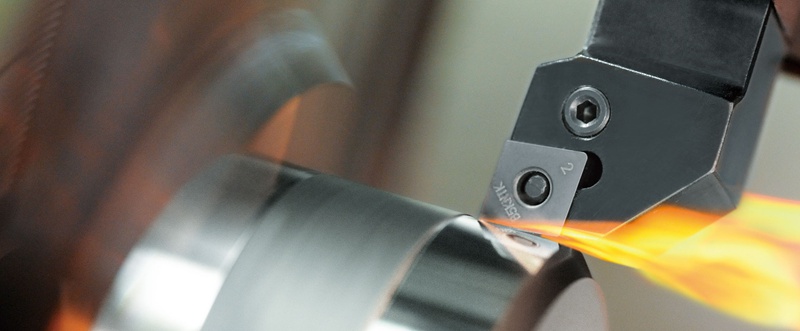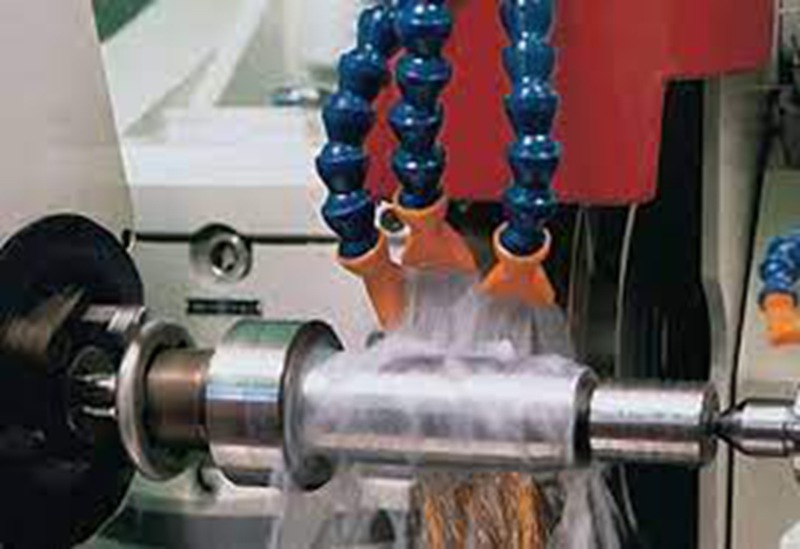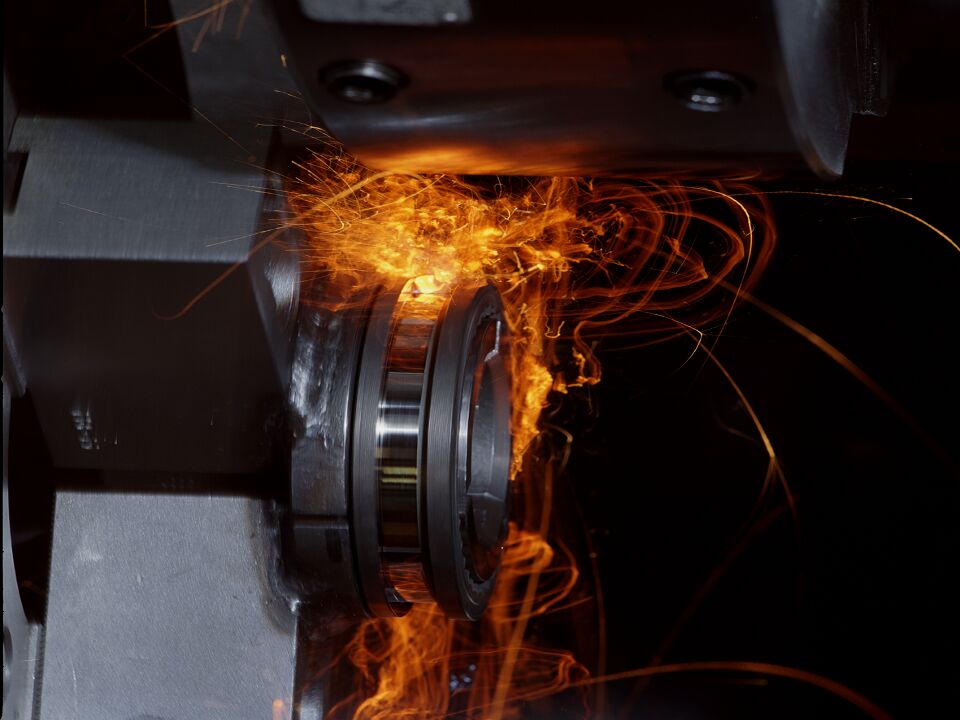In the competitive landscape of modern manufacturing, achieving precision and efficiency is paramount. Hard turning hardened steel has emerged as a transformative machining process, offering unparalleled benefits over traditional methods. At Halnn, we specialize in delivering top-tier hard turning solutions tailored to meet the rigorous demands of various industries. This article delves into the intricacies of hard turning hardened steel, its applications, advantages, and why Halnn is your trusted partner for precision machining.
Hard turning is a CNC (Computer Numerical Control) machining process that involves the removal of material from hardened steel surfaces using hardened cutting tools. Unlike traditional machining processes, hard turning eliminates the need for subsequent grinding operations, streamlining production and enhancing efficiency.
Hardened steel is a cornerstone material in industries such as automotive, aerospace, and tool manufacturing due to its strength and durability. Hard turning hardened steel not only maintains these properties but also ensures superior surface finishes and dimensional accuracy, making it indispensable in high-precision applications.
Hard turning is a precision machining process where hardened materials (typically steel with a hardness above 45 HRC) are machined using specially designed cutting tools. This process is capable of achieving tight tolerances and excellent surface finishes without the need for grinding.

Traditional machining methods like milling and grinding often require multiple steps to achieve the desired surface finish and dimensional accuracy. Hard turning consolidates these steps into a single process, reducing production time, costs, and material waste. Additionally, hard turning offers greater flexibility and adaptability in production settings.
While hard turning is predominantly used for hardened steel, it is also effective for other materials such as hardened stainless steel, titanium alloys, and certain non-ferrous metals. The versatility of hard turning makes it a preferred choice for diverse manufacturing needs.
In the automotive sector, hard turning is utilized for manufacturing components like gears, shafts, and bearings. The precision and efficiency of hard turning ensure that these critical parts meet stringent quality standards, enhancing vehicle performance and reliability.
The aerospace industry demands the highest levels of precision and reliability. Hard turning is employed to produce intricate aerospace components such as turbine blades and engine parts, where dimensional accuracy and surface integrity are crucial.
Tool and die manufacturers rely on hard turning to create durable and precise tools. The process ensures that dies and molds maintain their shape and functionality over extended use, reducing downtime and maintenance costs.
Beyond specialized industries, hard turning is widely used in general engineering for producing high-precision parts, molds, and fixtures. Its ability to handle hardened materials makes it invaluable in applications requiring both strength and accuracy.

Hard turning achieves superior surface finishes comparable to grinding. This reduces the need for additional finishing operations, saving time and costs while ensuring high-quality surfaces that meet stringent specifications.
The use of hardened cutting tools in hard turning results in longer tool life and enhanced durability. These tools maintain their sharpness and effectiveness even when machining tough, hardened materials, leading to consistent performance and reduced tool replacement frequency.
By consolidating multiple machining steps into one, hard turning lowers production costs. It minimizes material waste, reduces energy consumption, and decreases labor costs associated with additional finishing processes.
Hard turning offers high precision and tight tolerances, ensuring that machined parts meet exact specifications. This accuracy reduces the need for rework and enhances the overall quality of the final product.
Hard turning is a more sustainable machining process compared to traditional methods. It generates less waste, consumes less energy, and reduces the need for additional chemical treatments, contributing to a lower environmental footprint.
Hard turning requires specialized cutting tools made from materials such as carbide, ceramic, or cubic boron nitride (CBN). These tools are designed to withstand the high stresses and temperatures associated with machining hardened steel, ensuring optimal performance and longevity.
CNC lathes are the backbone of hard turning operations. These machines offer precise control over cutting parameters, enabling the production of complex geometries and maintaining consistent quality across batches.
Advanced tool coatings, such as TiAlN (Titanium Aluminum Nitride) and AlTiN (Aluminum Titanium Nitride), enhance the performance of cutting tools by providing superior wear resistance and reducing friction. These coatings extend tool life and improve the overall efficiency of the hard turning process.

Optimal cutting speeds are crucial for achieving the desired surface finish and tool longevity. Hard turning typically operates at higher cutting speeds compared to traditional machining, leveraging the hardness of both the material and the cutting tools.
The feed rate determines the material removal rate and affects the surface finish. Balancing the feed rate with cutting speed and depth of cut is essential for achieving optimal results in hard turning.
Controlling the depth of cut is vital for maintaining tool life and ensuring dimensional accuracy. Shallow cuts are often preferred in hard turning to reduce tool wear and achieve finer finishes.
Effective cooling and lubrication are essential to dissipate heat and reduce friction during hard turning. Proper coolant application enhances tool life, improves surface finish, and prevents thermal damage to the workpiece.
Choosing the appropriate cutting tool depends on the specific type of hardened steel and the application's requirements. Factors such as material hardness, composition, and desired surface finish must be considered.
Key specifications to evaluate include tool geometry, coating type, and material. These factors influence the tool's performance, durability, and suitability for specific machining tasks.
When selecting hard turning tools, it's important to compare various brands and models based on performance metrics, cost, and reliability. Partnering with reputable suppliers like Halnn ensures access to high-quality tools tailored to your needs.
Maintaining clean cutting tools and machine components is essential for optimal performance. Regular cleaning prevents the buildup of debris and contaminants that can impair machining efficiency.
Implementing a scheduled maintenance routine helps prevent unexpected downtime and extends the lifespan of both tools and machinery. Routine inspections and timely replacements of worn components are crucial for sustained productivity.
Common issues in hard turning include tool wear, chatter, and dimensional inaccuracies. Identifying and addressing these problems promptly ensures consistent quality and minimizes production disruptions.
While both processes achieve high-precision finishes, hard turning offers greater flexibility and faster production times. Grinding, on the other hand, is typically used for ultra-fine finishes and complex geometries.
Hard turning provides superior surface finishes and tighter tolerances compared to milling. Additionally, hard turning is more efficient for cylindrical parts, whereas milling is better suited for complex, multi-axis machining tasks.
When comparing hard turning to traditional methods, the cost-effectiveness and performance benefits are evident. Hard turning reduces the number of machining steps, lowers operational costs, and enhances overall efficiency, making it a preferred choice for many manufacturing applications.
Advancements in CNC technology, tool materials, and coatings have significantly improved the efficiency and capabilities of hard turning. Innovations such as adaptive control systems and real-time monitoring enhance precision and productivity.
The integration of smart technologies and automation in hard turning processes is on the rise. These trends aim to further increase precision, reduce human error, and optimize production workflows.

Adhering to industry standards and obtaining relevant certifications ensures that hard turning processes meet the highest quality and safety benchmarks. Compliance with standards like ISO 9001 enhances credibility and customer trust.
Hard turning is a CNC machining process that involves machining hardened materials using specialized cutting tools. Unlike traditional methods like milling and grinding, hard turning consolidates multiple steps into one, offering greater efficiency and precision.
Hard turning is suitable for various types of hardened steel, including alloy steels, stainless steels, and tool steels. The process is effective for materials with hardness levels above 45 HRC.
Key benefits include enhanced surface finish, increased tool life, cost-effectiveness, improved precision, and environmental sustainability.
Consider factors such as the type of hardened steel, required precision, production volume, and tool specifications. Consulting with experts from Halnn can help you choose the optimal tools for your needs.
Regular cleaning, scheduled maintenance routines, and periodic inspections are essential to maintain tool and machine integrity, ensuring consistent performance and longevity.
Hard turning hardened steel is a game-changing machining process that offers numerous benefits over traditional methods. From enhanced precision and surface finish to increased tool life and cost-effectiveness, hard turning meets the high demands of modern manufacturing. At Halnn, we are committed to providing top-quality hard turning solutions tailored to your specific needs. Our expertise, advanced tools, and dedication to innovation make us the ideal partner for your precision machining requirements.
For more information about our hard turning services or to request a custom solution, contact Halnn today.
WhatsApp:8613271562251
Email:service@halnn-group.com
Address:R & D 5B, National University Science and Technology Park, National University, Changchun Road, Zhengzhou High-tech Zone